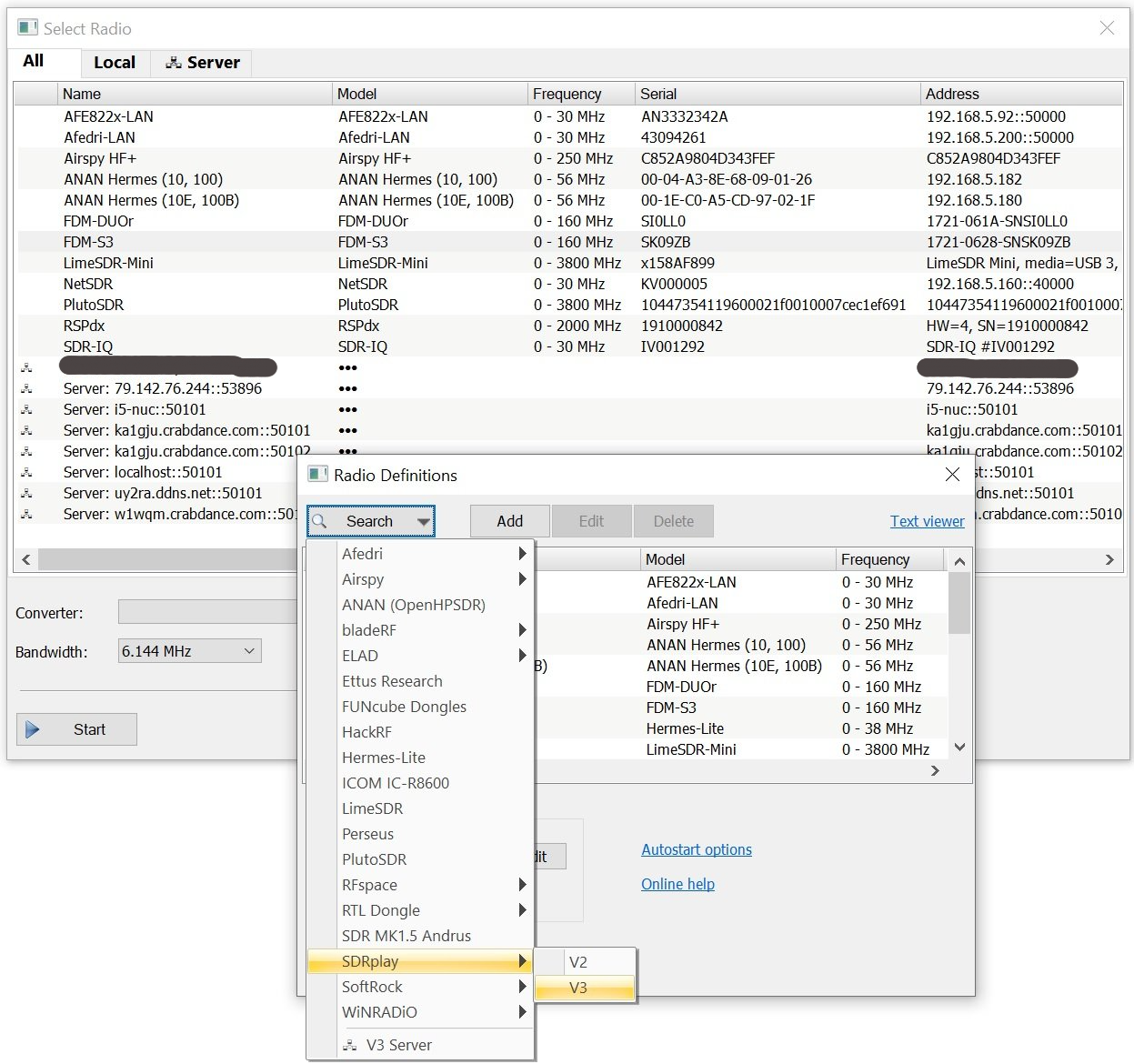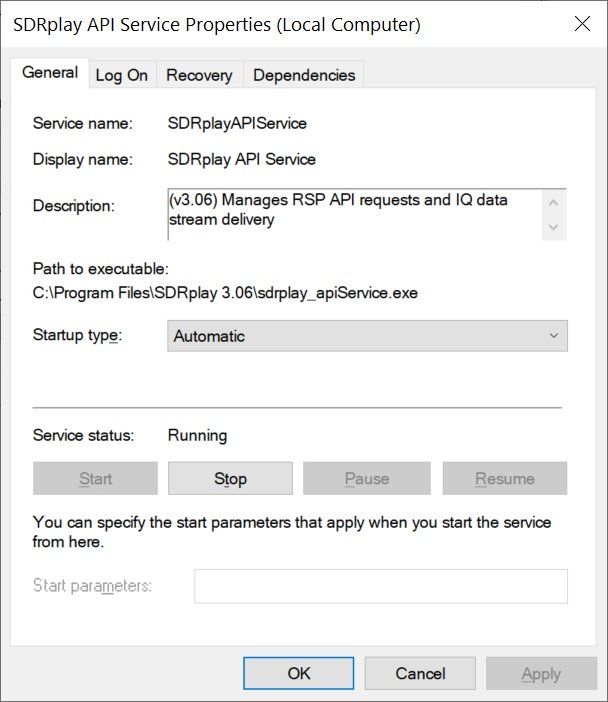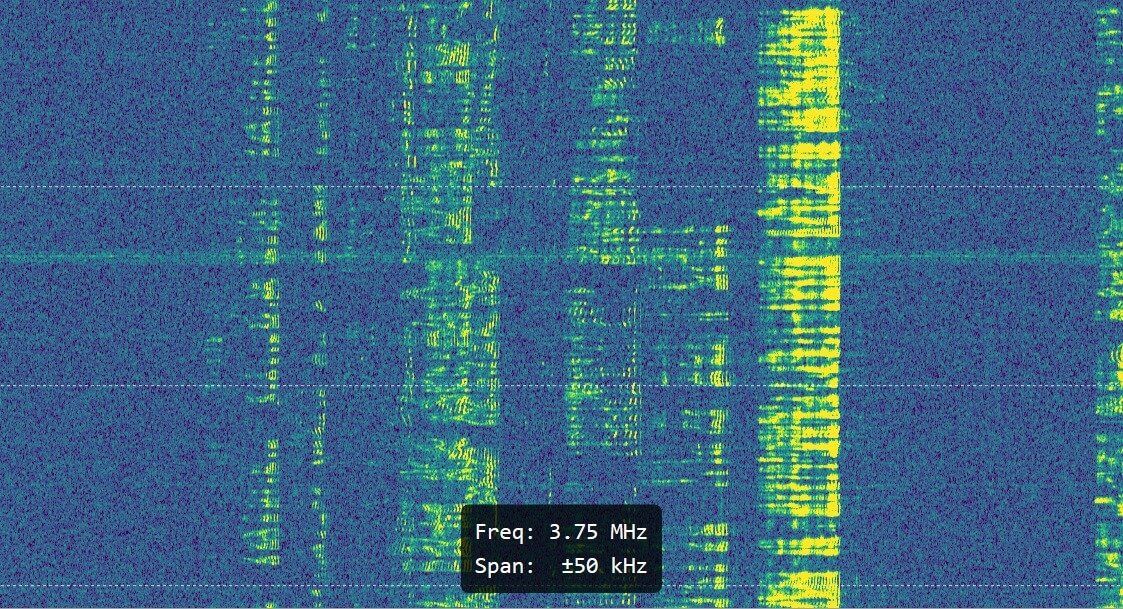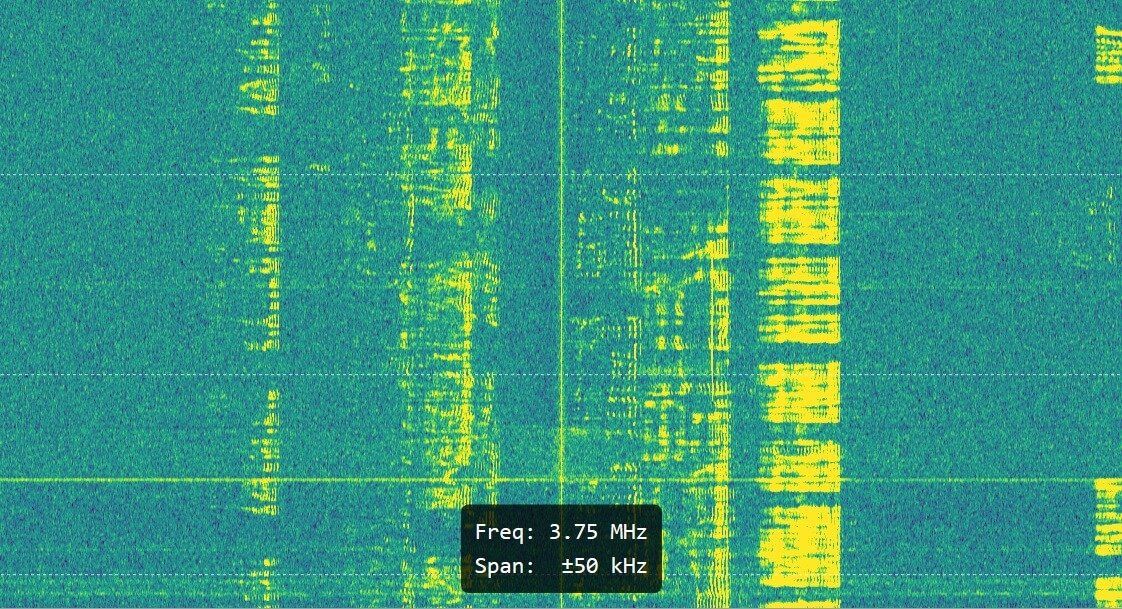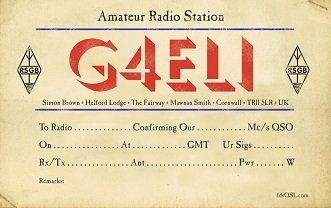SDRplay
API 3.09
December 1st, 2021: Tested with 3.0.9, works without problem.
API 3.07
June 2nd, 2020: v3.0.23 and prior versions statically linked v3.06 of the library and would only work with the 3.06 API. With v3.0.24 the API DLL is dynamically loaded, has been tested with 3.06 and 3.07.
Until 3.0.24 is released here are new DLLs, just copy to the folder where SDR Console is installed (stop SDR Console first).
32-Bit: [Link]
64-Bit: [Link]
API 3.06
Version 3.0.18 adds support for all SDRplay models using version 3.06 of the API library. While this support is being added the previous support using version 2.13 is still available.
Support
Supports the RSP1, RSP1A, RSP2, RSPduo and RSPdx.
Driver
Bandwidths
A range of bandwidths is available. For best results select a Low IF option, this will not have a spur in the center of the display which is caused by DC inbalance.
RSPduo
Currently this software only supports one receiver at a time.
RSPdx HDR
Full support for the RSPdx high dynamic range as shown. For HDR support the radio must be started in 2 MHz Low-IF mode.
| Frequency | Filter |
|---|---|
| 135 kHz | 200 kHz |
| 175 kHz | 200 kHz |
| 220 kHz | 200 kHz |
| 475 kHz | 200 kHz |
| 516 kHz | 200 kHz |
| 1900 kHz | 200 kHz |
| 250 kHz | 500 kHz |
| 340 kHz | 500 kHz |
| 1125 kHz | 1.2 MHz |
| 875 kHz | 1.7 MHz |
SDRplay API Service Disabled
When you install the SDRplay support software a service is created which is set to start automatically when your computer starts.
If you use AVG Tuneup you may find the service is disabled, so configure AVG Tuneup so the service is not changed.
API 2.13 (Old)
Support
Supports the RSP1, RSP1A, RSP2, and RSP2duo (not RSPdx).
Driver
You must install drivers to use the RSP radios. The drivers are available here [link].
Freeze / Lock-up
The software can freeze when using the RSP for two reasons:
- Insufficient USB power [Link],
- Mirics support library bug.
If the software locks-up you must unplug the USB cable from the SDRplay hardware, wait a few seconds then reconnect.
Support Library
There is a bug in the 64-bit (and possibly 32-bit) version of the support library which is currently under investigation. To reduce the risk of this bug do not set the RF Gain too high and at the same time use Automatic IF Gain.
Overload
If the SDR is overloaded - you see unexpected spurs on the display:
- User a lower bandwidth, 2.048 MHz or lower
- Reduce the RF gain.
- Usually too much RF gain results in unwanted spurs.
Bandwidth
For best performance use a bandwidth of 2.048 MHz or lower. Bandwidths greater than 2.048 MHz have a spur in the centre of the display which is generated by the SDRplay hardware and cannot be eliminated. If you listen to a signal in the centre with a bandwidth greater than 2.048 MHz the audio will be distorted and have many unwanted artefacts.
Also, lower bandwidths require less data to be processed, so the CPU load on your computer will be reduced.
Spur
Here is an example of the centre spur at 3 MHz bandwidth compared to 2.048 MHz.
